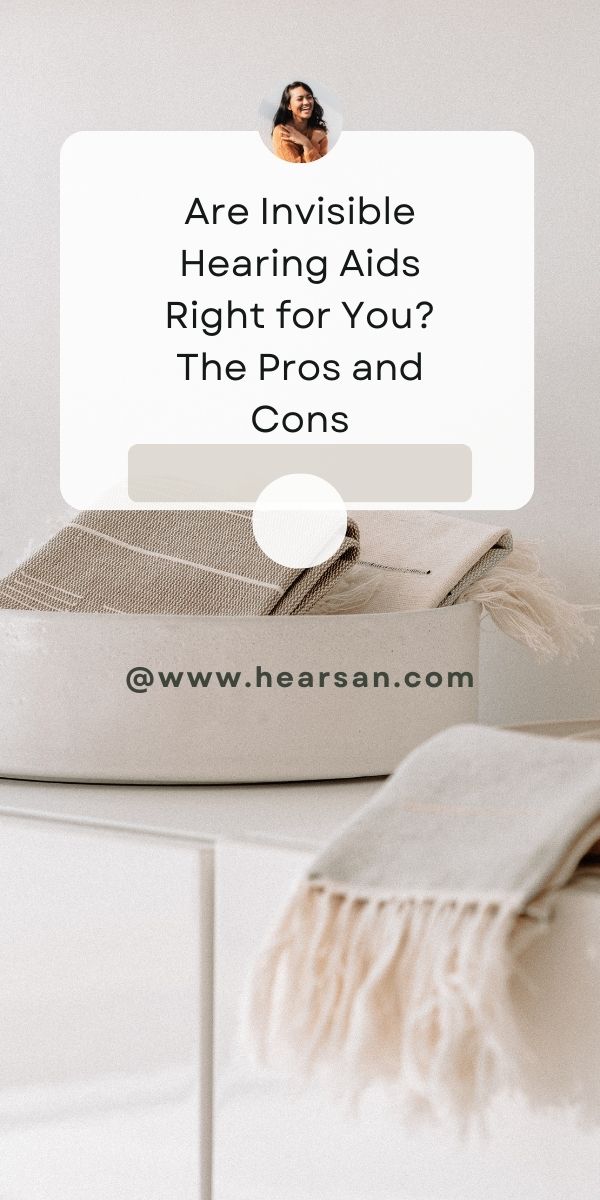Introduction,
Invisible hearing aids are a type of hearing aid that fits completely inside the ear canal, making them virtually invisible to others. They are a popular choice for people who are self-conscious about wearing hearing aids, but they also have some potential drawbacks.
Pros of Invisible Hearing Aids
- Discreet: The main advantage of invisible hearing aids is that they are very discreet. They are virtually invisible to others, which can be a major benefit for people who are self-conscious about wearing hearing aids.
- Comfortable: Invisible hearing aids are custom-fitted to your ear canal, so they are generally more comfortable to wear than larger hearing aids.
- Good sound quality: Despite their small size, invisible hearing aids use advanced technology to provide excellent sound quality.
- Easy to use: Invisible hearing aids are typically easy to use, with simple controls and features.
Cons of Invisible Hearing Aids
- Limited features: Because of their small size, invisible hearing aids may have limited features compared to larger hearing aids.
- Requires good dexterity: Invisible hearing aids are very small and require good dexterity to insert and remove from the ear canal.
- Battery life: Invisible hearing aids use small batteries, which may need to be replaced more frequently than larger hearing aids.
- Cost: Invisible hearing aids are generally more expensive than traditional hearing aids.
Are invisible hearing aids right for you?
Invisible hearing aids may be a good option for people who:
- Have mild to moderate hearing loss
- Are self-conscious about wearing hearing aids
- Have good dexterity
- Are willing to pay a premium for a discreet hearing aid
However, invisible hearing aids may not be the best choice for people who:
- Have severe hearing loss
- Need advanced features, such as directional microphones or telecoils
- Have difficulty handling small objects
If you are considering invisible hearing aids, it is important to talk to your audiologist to see if they are a good option for you.

